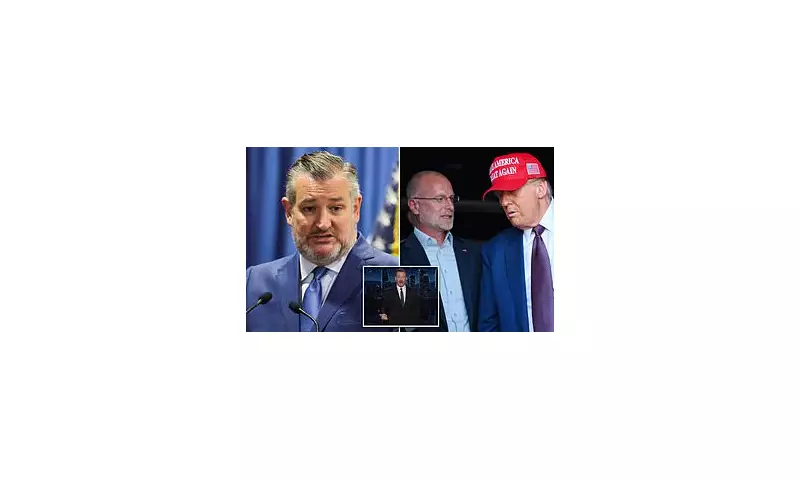
In a dramatic escalation of the ongoing culture wars, Republican Senator Ted Cruz has formally demanded the Federal Communications Commission launch a full investigation into ABC television host Jimmy Kimmel.
The fiery Texas senator's extraordinary move comes after Kimmel's late-night monologue included sharp criticism of former President Donald Trump during coverage of the Republican National Convention.
The Contentious Monologue That Sparked a Political Firestorm
During his recent broadcast, Kimmel delivered a series of pointed jokes targeting Trump's appearance and mannerisms, particularly focusing on the former president's application of tanning products. The comedian's routine included impersonations and commentary that Cruz has deemed wildly inappropriate for broadcast television.
"This wasn't satire—it was a partisan attack masquerading as entertainment," Cruz asserted in his formal complaint to the FCC, arguing that Kimmel's segment violated broadcasting standards regarding political content.
First Amendment Clash or Legitimate Regulation?
The senator's demand has ignited a fierce constitutional debate, pitting free speech protections against broadcasting regulations. Cruz maintains that Kimmel's platform on ABC, a network affiliated with major local stations, subjects his content to stricter FCC oversight regarding political fairness.
Media law experts, however, remain divided. While the FCC does enforce rules about political advertising and equal airtime for candidates, applying these regulations to entertainment programming—particularly satire—represents uncharted legal territory.
Conservative Backing and Liberal Outrage
Turning Point USA founder Charlie Kirk quickly amplified Cruz's position, declaring Kimmel's routine "another example of liberal media bias" during an appearance on his popular talk show. The conservative commentator argued that mainstream entertainment platforms consistently target Republican figures with disproportionate criticism.
First Amendment advocates and media watchdogs have pushed back vigorously, warning that Cruz's approach could establish dangerous precedents for government oversight of protected speech. "Using federal agencies to police comedy sets is something we'd expect in authoritarian regimes, not American democracy," a Media Matters spokesperson commented.
Kimmel's History of Political Provocation
The ABC host is no stranger to political controversy, having frequently used his platform to critique Republican policies and figures. His segments have previously drawn criticism from conservative groups, though never before prompting calls for federal intervention.
This incident represents a significant escalation in the ongoing battle between entertainment media and political figures, blurring the lines between comedy, journalism, and political commentary.
Broader Implications for Media and Politics
As the FCC considers how to respond to Cruz's unprecedented request, media analysts warn that any move toward regulating satirical content could have chilling effects across the entertainment industry. The outcome may redefine the boundaries of political speech in broadcast entertainment during increasingly polarized times.
Meanwhile, Kimmel continues his regular broadcasting schedule, with representatives indicating he has no plans to alter his comedic approach despite the political pressure.






